Why Is My Pressure Washer Tripping the Breaker? (6 Common Issues & Fixes!)
Pressure washers are powerful tools designed to remove stubborn dirt, grime, and debris from a variety of surfaces. But, because electric pressure washers can draw a lot of power, and they are typically used around water, it is fairly common for them to trip breakers or GFCI switches.
But, why is my pressure washer tripping the breaker?
If your pressure washer is tripping the breaker, it is likely because of an extension cord issue, an overloaded circuit, a ground fault, a short circuit, or a defective motor or pump that is pulling too much power.
This issue can be both frustrating and inconvenient, as it interrupts the cleaning process and may even pose a potential safety hazard. Understanding the reasons behind pressure washer circuit breaker trips can help users prevent this problem and ensure the safe and efficient operation of their equipment.
The most common reasons why your pressure washer is tripping the breaker – and fixes
When using a pressure washer, you may occasionally encounter the issue of the appliance tripping the breaker.
An overloaded circuit
An overloaded circuit occurs when the electrical system cannot handle the power required by the pressure washer.
An electric pressure washer requires a specific voltage and amperage to operate efficiently. If the circuit that your pressure washer is plugged into has limited capacity, it may cause the breaker to trip. Typically, a pressure washer needs a 120V and 15A circuit to function properly.
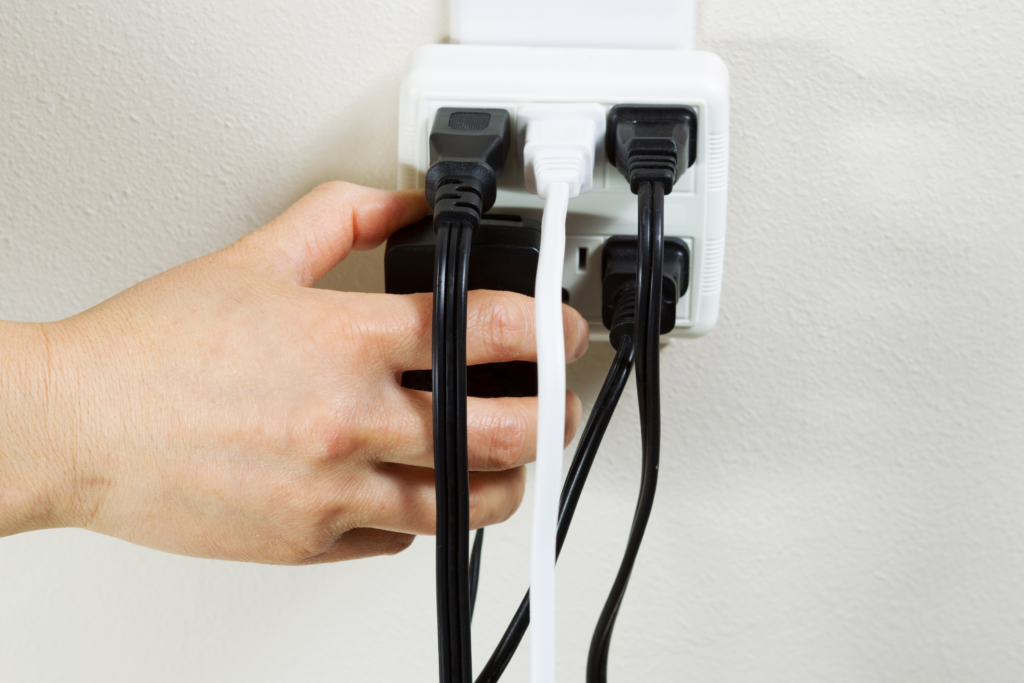
How to fix it
To avoid overloading the circuit, make sure not to use other heavy-duty appliances on the same circuit simultaneously. Avoid using long extension cords, as they may increase the risk of voltage drops and overheating. If the problem persists, consider installing a dedicated circuit or upgrading your home’s electrical system to accommodate the pressure washer without any issues.
If necessary, you can relocate the pressure washer to another circuit or disconnect other high-consuming devices while in operation.
Short circuit
A short circuit happens when live wires touch each other, causing excessive current flow within the electrical system.
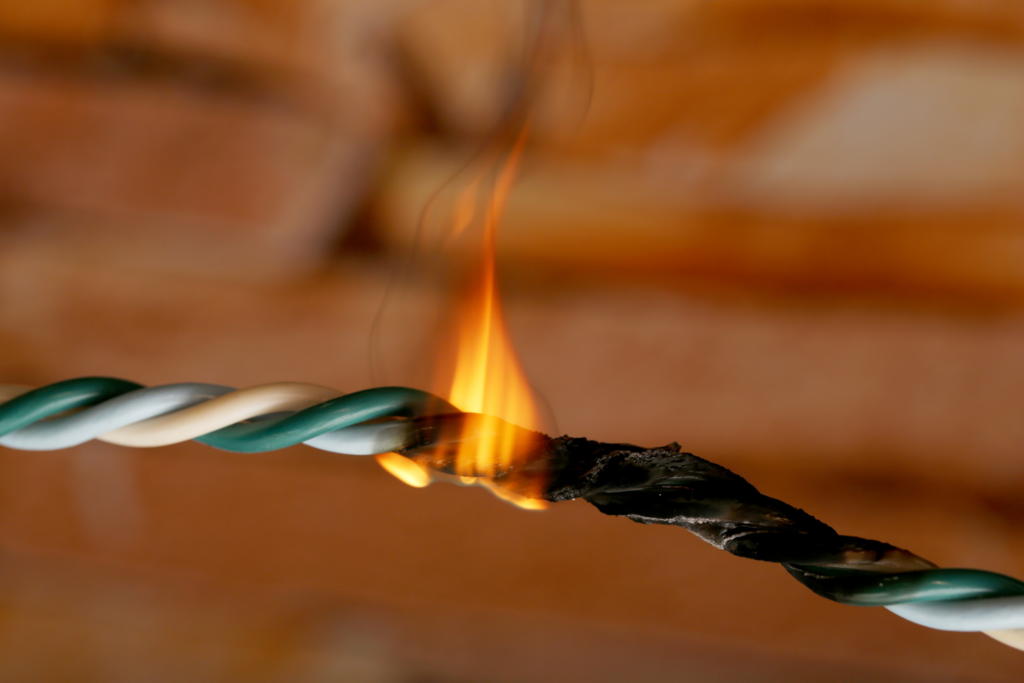
How to fix it
Check the wiring connections and replace any damaged parts.
It is actually the GFCI tripping, not the breaker
Using a Ground Fault Circuit Interrupter (GFCI) outlet is essential for safety when using electric pressure washers. A GFCI receptacle is designed to protect against electrical shocks by detecting imbalances in the current and automatically shutting off power if necessary.
If your pressure washer trips the GFCI outlet, there may be an issue with the power cord, connections, or the outlet itself.
While you are probably familiar with GFCI breakers or outlets, it is fairly common for electric pressure washers to come with its own GFCI installed at the end of the power cord. Any one of these could be tripping, causing the pressure washer to stop working until you ‘reset’ the GFCI.
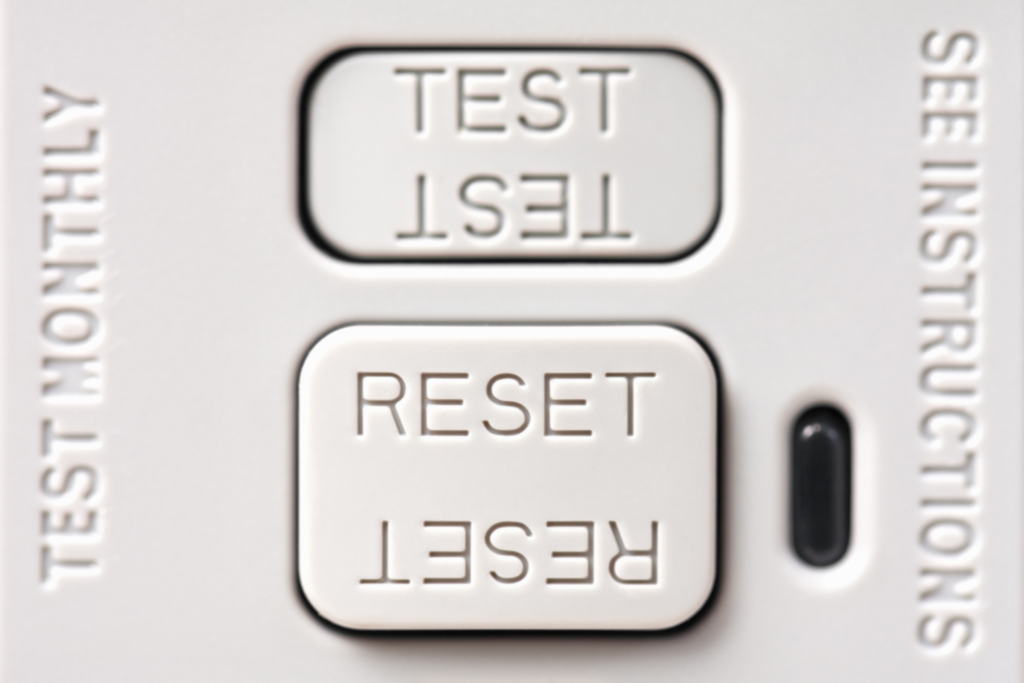
How to fix it
Inspect the pressure washer’s power cord and connections for any signs of wear, damage, or rust. If the issue persists, test the GFCI outlet with another appliance to ensure the problem isn’t with the receptacle. Replace any faulty cords, connections, or outlets as needed.
Also, reset any tripped GFCI switches.
Defective pressure washer – motor, pump, switch
Faulty appliances can also be the cause of a tripping circuit breaker. If your pressure washer has damaged or worn-out components, such as a shorted motor or a malfunctioning switch, it can trip the breaker.
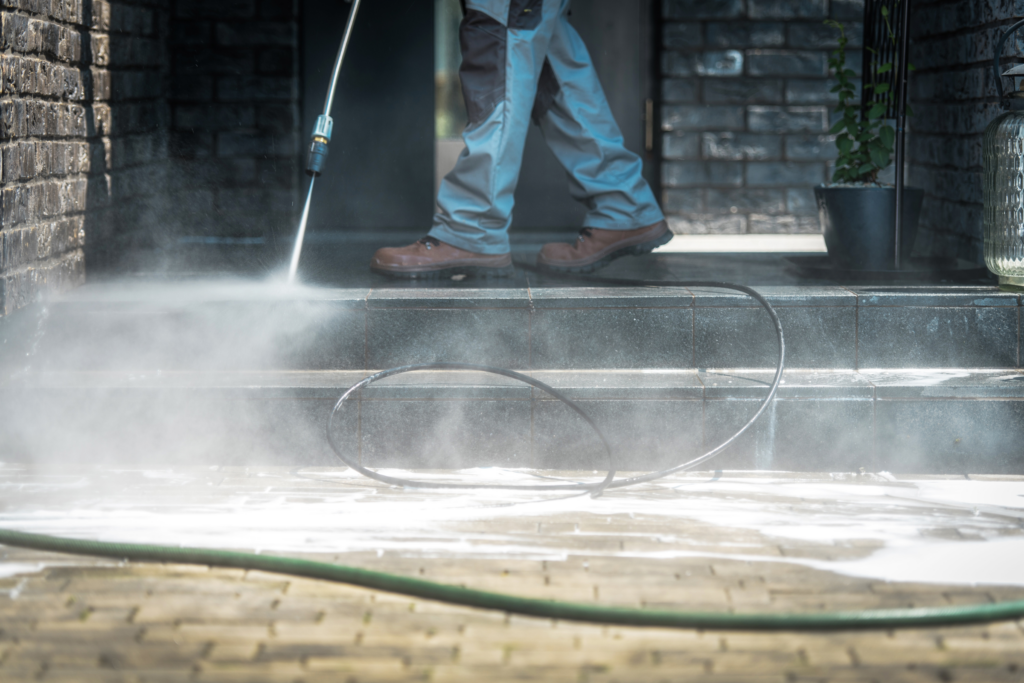
How to fix it
Examine your pressure washer for any signs of damage or wear – troubleshooting the motor and pump components may involve checking for leaks, rust, or mineral deposits. Replace or repair these parts as needed.
If necessary, consult a professional or the manufacturer for further assistance.
Sensitive or faulty circuit breaker
Lastly, a sensitive or faulty circuit breaker may be the problem. Circuit breakers are designed to protect your electrical system by tripping when excessive current is detected.
However, if the breaker itself is faulty or overly sensitive, it may trip unnecessarily.
How to fix it
If you suspect that the circuit breaker itself is to blame, you’ll probably need to contact a licensed electrician to inspect the breaker and replace it if necessary.
By identifying the root cause of the tripping breaker, you can continue using your pressure washer safely and efficiently. In the next section, we will discuss potential solutions and preventative measures to avoid this issue in the future.
Extension cord issues
Using an extension cord may cause voltage drops and increased current flow, leading to the breaker’s tripping.
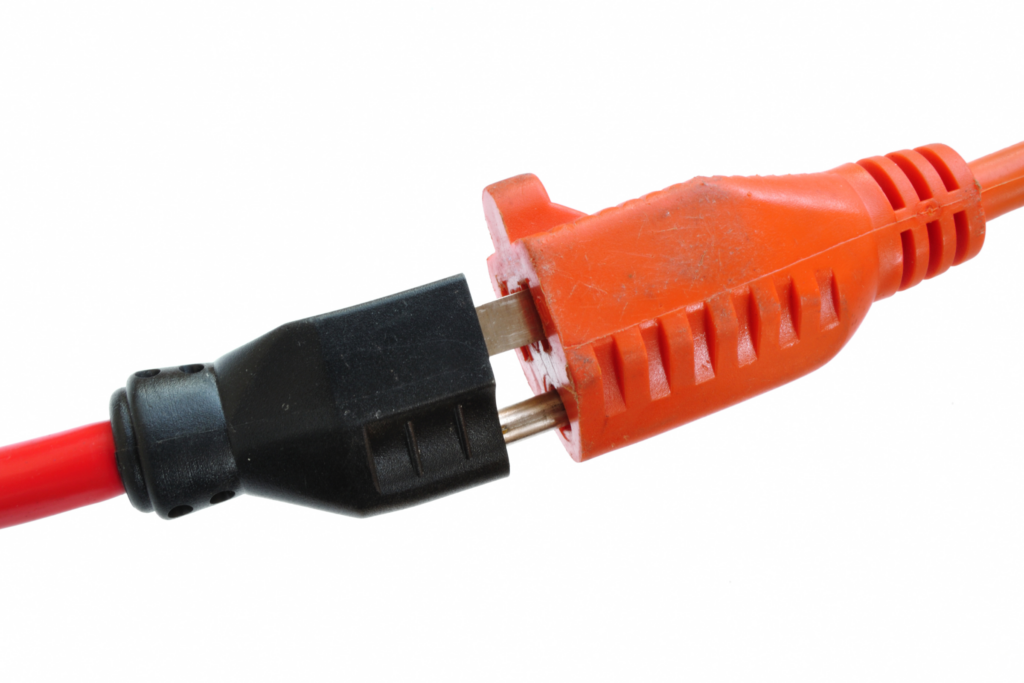
How to fix it
If possible, connect the pressure washer directly to the outlet without using an extension cord.
Moisture and water-related problems with pressure washers
Water intrusion in a pressure washer can trigger the breaker to trip due to potential electrical shorts.
Key culprits include leaks in the pump, hose, fittings, or connections. Faulty o-rings often cause such leaks. Additionally, an improper water supply can also pose operational problems.
To prevent electrical disturbances, regularly inspect and replace vulnerable parts and ensure an adequate water supply as per your device’s manual.
| Problem Area | Issue Description | Solution |
|---|---|---|
| Pump | Possible leak leading to electrical shorts | Check and replace if necessary |
| Hose, Fittings & Connections | Leaks or moisture buildup | Identify and fix the source of the leak |
| O-Rings | Worn out or damaged | Inspect and replace to ensure proper sealing |
| Water Supply | Inadequate pressure or flow rate | Confirm the supply matches pressure washer specifications |
By promptly addressing moisture and water-related issues, your pressure washer will operate more efficiently and safely. Further sections will explore other potential causes and remedies.
Pressure Washer Components Issues
| Component | Issue | Solution |
|---|---|---|
| Motor Bearings | Worn out | Check and replace bearings |
| Filters | Clogged | Clean filters |
| Oil | Inadequate | Ensure proper oil levels |
| Pump Valves | Faulty | Inspect and replace with appropriate parts |
Motor Related Issues
One common cause for pressure washers to trip breakers is motor-related issues.
Over time, the motor’s internal parts can wear down or become damaged. If the bearings are worn out, they can cause additional resistance in the motor, leading to overheating and tripping the breaker. Similarly, if the motor is overworked due to clogged filters or inadequate oil levels, it can also lead to tripping.
To address these motor-related issues, consider checking and replacing worn-out bearings, cleaning filters, and ensuring proper oil levels.
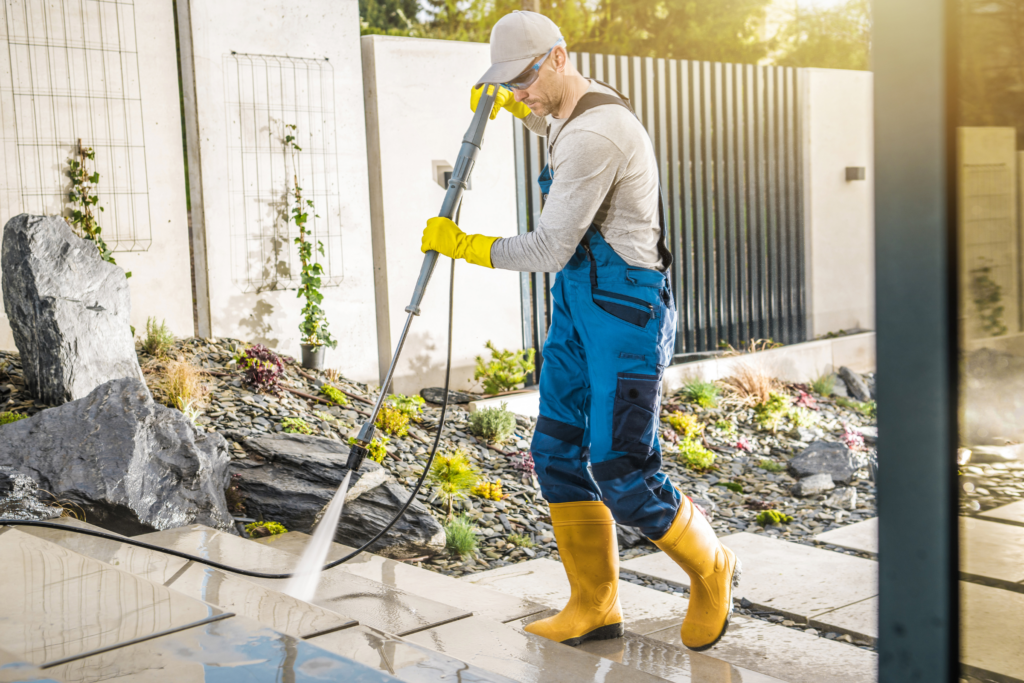
Faulty Pump Valves
Another possible issue leading to breaker tripping is faulty pump valves.
Valves play an essential role in managing the flow of water within the pressure washer. Over time, valves may become clogged with dirt and debris, or they may wear down and lose their ability to regulate water flow.
When valves aren’t functioning correctly, the pressure washer’s pump has to work harder, potentially causing overheating and tripping the breaker. To resolve this issue, inspect the valves for any signs of wear or clogging and consider replacing them with new pressure washer parts if necessary.
Defective Start Winding Switch
Additionally, a defective start winding switch can contribute to a pressure washer tripping the breaker. This switch is responsible for transitioning the motor from starting mode to running mode.
If the switch fails, the motor will remain in starting mode, resulting in increased current draw and, ultimately, tripping the breaker. To address this issue, test the start winding switch using a multimeter and replace it with a new one from your pressure washer accessories if it’s found to be faulty.
In the next section, we will discuss possible methods to prevent breaker tripping when using a pressure washer.
Preventative maintenance for your pressure washer
Proper care and maintenance of your electric pressure washer are crucial for its durability and safe operation.
Inspect its main components, like the pump and electrical circuits, for any malfunctions. Clean the water inlet filter, ensure a consistent water supply, and quickly address any leaks. Use only recommended detergents and monitor for spills. Vent the pump by running the washer idle before use. Always connect to a grounded outlet and inspect the power cord regularly. Implement a thorough shut-off routine, referring to your manual for exact procedures.
Table:
| Maintenance Area | Description | Action |
|---|---|---|
| Major Components | Pump, valves, and circuits | Inspect regularly for functionality |
| Water Inlet Filter | Prevents clogs | Clean regularly |
| Water Supply | Consistent flow & pressure | Ensure supply meets manufacturer’s specs; fix leaks |
| Detergent Use | Chemical solutions | Use only recommended types; monitor for spills |
| Pump Venting | Prevents overheating | Run washer idle before using spray gun |
| Electrical Safety | Grounded outlet and cord condition | Plug into a proper grounded outlet; check power cord for wear |
| Shut-off Routine & Storage | Prolongs life | Clean residual detergent, shut off spray gun, relieve pressure, and follow storage instructions |
Regular maintenance practices and adhering to guidelines ensure the efficient and safe operation of your electric pressure washer.
Conclusion
In summary, a pressure washer may trip the circuit breaker due to various reasons such as an overloaded circuit, faulty electrical wiring, or an incompatible power outlet. Ensuring that the pressure washer is connected to a suitable outlet with the correct voltage, and using a dedicated circuit can help to resolve these issues. Regular maintenance of the pressure washer and its electrical components is essential in preventing circuit breaker trips.
Additionally, it is crucial to pay attention to the manufacturer’s guidelines and safety precautions when using a pressure washer. These measures can help to extend the lifespan of the equipment while minimizing the risk of circuit breaker trips.
Going forward, it would be beneficial to consider investing in a pressure washer with built-in protection systems for added safety. This may prevent potential issues that could lead to tripping the breaker.
Let Us Know How We’re Doing!
Did this expertly prepared resource answer your question?
Do you have another question about home maintenance, home improvement projects, home appliance repair, or something else?
Get more information, send in questions and keep the discussion going by contacting the I’ll Just Fix It Myself company customer service team at at 1-800-928-1490 or Email us at [email protected]
